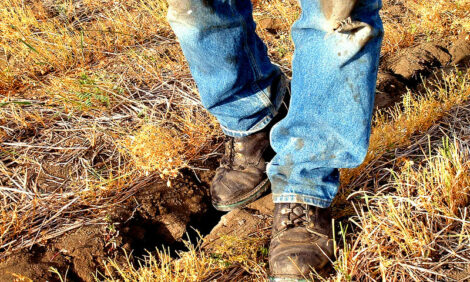



EU-Canada Trade Talks Stumble Over Supply Management
GLOBAL - In trade talks between Canada and the EU, agriculture is providing one of the stumbling blocks: European negotiators are unhappy that the Canadian supply management systems for their poultry and dairy industries are excluded from the discussions.A European diplomat in Montreal, Canada, has identified three potential obstacles to a free-trade deal with Canada: intellectual property rights, agriculture and government contracts, reports Winnipeg Free Press.
Though the outlook for a wide-ranging Canada-EU treaty remains positive, Spain's ambassador to Ottawa indicated several areas will require significant concessions from both sides.
"There are of course some chapters which will be very easy to close," ambassador Eudaldo Mirapeix told reporters in Montreal. "There are two or three which are difficult but not insurmountable."
Both sides are working to conclude an expansive free-trade agreement by the end of 2011.
Ottawa hopes an eventual deal will be even more comprehensive than the North American Free Trade Agreement (NAFTA), and predicts it would boost the country's GDP by C$12 billion annually.
But the upcoming round of negotiations in Brussels next month July will likely be more difficult than previous bargaining sessions as trade representatives broach the specifics of a deal, reports Winnipeg Free Press.
Mr Mirapeix singled out government procurement issues as especially sensitive, given that Canadian provinces are responsible for roughly 75 per cent of state contracts.
The provinces all have seats at the negotiating table; some have indicated they may be reticent to open public tenders to Europeans bidders.
"The federation is the entity that signs the agreement but it is implemented by the provinces," Mr Mirapeix said. "This might bring some long discussions until we come to an agreement."
The presence of the provinces marks a first in Canadian trade negotiations, but was insisted upon by the Europeans, who have made access to the lucrative market for sub-federal contracts a priority.
At the same time, the provinces could resist any European effort to curb the supply management of agriculture.
"Agriculture is supposed to create some discussions, some problems – especially dairy," Mr Mirapeix said.
Last month, the Conservative government sought to assure both the dairy and poultry industries that supply management was off the table.
"If we open our borders there will be huge difficulties for these sectors," Jean-Pierre Blackburn, minister of state for agriculture, said at the time. "There would need to be changes for the way we do things. And we're functioning very well in Canada."
But as negotiations move forward, some observers wonder how a final deal can be possible without concessions on that front.
"It's hard to see that any future trade agreements will come about with zero impact on supply management," Shirley-Ann George, senior vice-president of policy at the Canadian Chamber of Commerce, said in a recent interview with Winnipeg Free Press.
"I have a hard time envisioning any trade agreement in which one small sector would be provided the opportunity to stay so protected."
The third sticking point highlighted by the Spanish envoy is intellectual property rights, but tensions here may be eased if Ottawa is able to pass a new copyright bill over the coming months.
TheCattleSite News Desk


